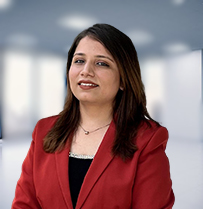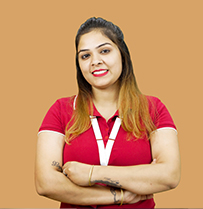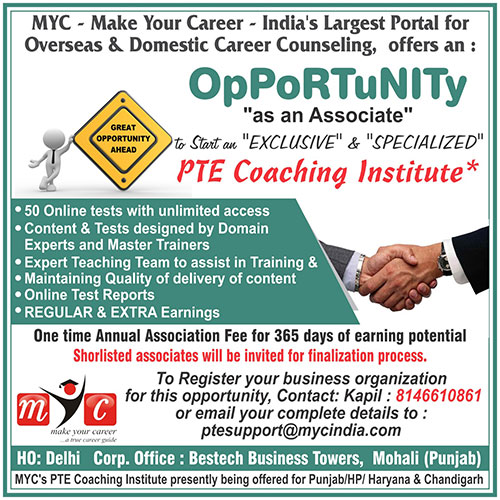
Everything You Need to Know About RMP Course in Allopathy in Kolkata
Introduction
The Registered Medical Practitioner (RMP) course in Allopathy is a specialized program that trains individuals in allopathic medicine. In Kolkata, this course plays a significant role in strengthening the healthcare workforce. This course offers aspiring healthcare professionals an accessible pathway into the medical field. Equipping students with essential medical skills and knowledge prepares individuals with healthcare services effectively. These programs serve as a bridge for those aspiring to enter the medical field without extensive formal medical training.
Significance of the RMP Course
The RMP course plays a significant role in Allopathy, a branch of medicine that focuses on treating diseases through medications and surgeries. This course enables participants to gain practical skills and foundational knowledge in medical practice, making them competent primary care providers. RMP course covers various aspects such as:
-
Eligibility criteria
-
Course duration
-
Curriculum details
-
Certification Process
-
Legal framework
-
Fees Structure
-
Institutions offering the course
-
Career opportunities
Role of Registered Medical Practitioners (RMPs)
RMPs play a crucial role in the healthcare system, especially in areas with limited access to fully qualified doctors. Their responsibilities include:
Providing Basic Medical Care: RMPs administer first aid, perform CPR, and manage common health issues. Primary Healthcare Providers act as patients' first point of contact, offering initial diagnoses and treatments.
Community Health Education: RMPs often educate communities on health practices and preventive measures.
Differentiation between RMPs and Fully Qualified Doctors
1. Educational Background: Fully qualified doctors undergo extensive training, including a bachelor's degree in medicine (MBBS), internships, and specialization. In contrast, RMPs complete shorter training programs focusing on practical skills.
2. Scope of Practice: While RMPs can provide general medical care and manage common ailments, they are restricted from performing surgeries or critical care procedures. Fully qualified doctors have broader capabilities, including diagnosing complex conditions and conducting surgeries.
3. Certification: Practitioners receive a certificate allowing them to practice as RMPs. However, they must adhere to legal restrictions that limit their medical interventions.
Eligibility Criteria for Pursuing an RMP Course in Allopathy
Educational Background- Candidates must have completed their 10th and 12th grades. This foundational education ensures students possess the basic knowledge required to grasp the more advanced concepts taught during the course.
Prior Medical Experience- While prior medical experience is not mandatory; it can significantly benefit candidates during the application process. Those with some background in healthcare, such as paramedics or nurses, may find it easier to adapt to the curriculum and practical aspects of the training.
Age Requirements- Age restrictions ensure that candidates are mature enough to handle the responsibilities of a Registered Medical Practitioner. Applicants range from 18 to 45 years.
Duration and Structure of an RMP Course in Allopathy
1. Course Duration- The course duration for an RMP (Registered Medical Practitioner) program in Allopathy typically spans from 1 to 3 years, depending on the institution and specific program structure.
2. Curriculum Components- An RMP course in Allopathy is designed to equip students with essential medical knowledge and practical skills. Key components of the curriculum include:
First Aid Training- Students learn to provide immediate care during medical emergencies, including handling wounds, fractures, burns, and other acute conditions.
CPR Techniques- Cardiopulmonary Resuscitation (CPR) training is crucial for saving lives during cardiac or respiratory arrest.
Practical Skills Development- This includes hands-on experience through practical training sessions and learning how to administer injections, take vital signs, perform basic diagnostic tests, and manage common ailments.
Basic Healthcare Practices- Learn general healthcare practices such as maintaining hygiene standards, patient communication, and basic pharmacology.
Certification Process and Legal Framework Governing RMPs' Practice
Certification Process- Upon successful completion of the RMP course, students are awarded a certificate. This certification authorizes individuals to engage in medical practice within the scope defined by regulatory bodies. The certification process typically involves:
Completion of Coursework- Students must fulfill all academic and practical training requirements their institution outlines.
Examinations- Candidates are often required to pass both written and practical tests.
Certification Issuance- Upon meeting these criteria, institutions award certificates that endorse graduates as qualified RMPs.
Legal Guidelines for RMPs
Surgical Restrictions: RMPs are prohibited from performing surgeries. Their role is confined to providing primary medical care and essential health services.
Critical Care Limitations: Not authorized to manage essential care cases or treat life-threatening conditions requiring specialized medical expertise.
Prescription Boundaries: Can prescribe general medications but are restricted from prescribing certain classes of drugs.
Fees Structure and Financial Considerations for Students Enrolling in an RMP Course
Financial planning is crucial for students when enrolling in an RMP course. The course fees typically range between ₹15,000 and ₹21,000, depending on the institution. This cost covers the primary training and educational resources essential for the curriculum.
Some extra expenses:
-
Study Materials: Textbooks, manuals, and other educational resources.
-
Uniforms: Lab coats or scrubs are required for practical sessions.
-
Miscellaneous Fees: Examination fees or administrative costs might be imposed by certain institutions.
Institutions Offering RMP Courses in Kolkata:
Dr. B.C. Roy Memorial Complementary Medicines Research Centre- Known for its extensive curriculum covering both theoretical and practical aspects of Allopathy. Equipped with state-of-the-art facilities to ensure hands-on training. It offers mentorship from experienced healthcare professionals. It focuses on a holistic approach to primary healthcare education. Emphasizes first aid and CPR techniques through interactive sessions and workshops.
Institute of Health Sciences- Provide training programs designed to meet industry standards. It includes modules on patient communication and ethical practices in healthcare. The institute offers placement assistance and internship opportunities in various healthcare settings.
These RMP training centers stand out due to their commitment to quality education, practical skill development, and student support, making them ideal choices for aspiring Registered Medical Practitioners in Kolkata.
Career Opportunities Awaiting Graduates of an RMP Course in Allopathy:
Graduates of the RMP course in Allopathy have access to a wide range of job prospects and career path options within the healthcare sector:
Clinics: RMPs can work in private or community clinics, providing essential medical services such as first aid, minor treatments, and primary health consultations.
Community Health Centers: These centers often serve underprivileged areas with limited healthcare access. RMPs are crucial in delivering primary care, conducting health camps, and providing preventive services.
Home Healthcare Services: RMPs can provide at-home medical care for patients needing regular monitoring and essential medical assistance.
Conclusion:
RMPs often find career satisfaction by serving their communities directly. By working, they gain valuable experience and establish themselves as trusted healthcare providers within their localities. The RMP course equips graduates with practical skills that make them indispensable in various healthcare environments. This hands-on experience paves the way for advancements within the medical field or further educational pursuits.

 International Experts
International Experts





Comments